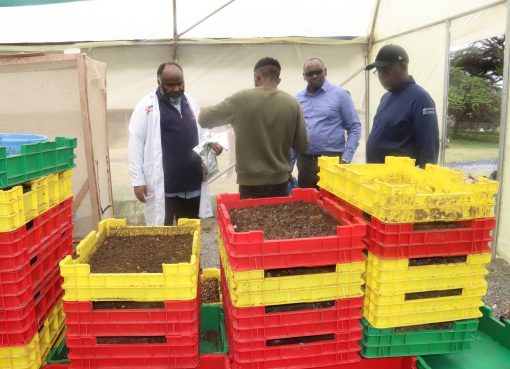Political rhetoric and census will not affect the government projected economic growth of 6 -7% of Gross Domestic Product (GDP) of year 2019/20.
While addressing media on Thursday in Nairobi, Metropol Corporation Limited Group Managing Director (GMD) and Chief Executive Officer (CEO), Sam Omukoko said that the group’s GDP findings were based on Gross Fixed Capital formations.
Towards this, he said, focus will be on the President’s Big 4 Agenda mainly on major projects that would be financed by savings which stood at 24 per cent meaning a sustained GDP of 6-7 per cent would otherwise be higher if people saved more.
Other sources of the finances, he said, would be from both domestic and international borrowing.
“The 6.7-7 percentage growth will have an early teething problem for the Big 4, but the scenario is expected to change in a trajectory way to 8-9 per cent in the year 2020/21 with most funding directed towards the Agendas,” said Omukoko
“There are around 15 dams aimed at irrigation thus food production and security, the last mile connectivity and major power projects like the Suswa-Isinya Powerline under construction and Garissa power project that will inject 55 megawatts in the national grid to boost manufacturing,” stressed the CEO.
“International oil and gas prices will be suppressed in 2019/20 and oil is expected to average at 60 dollars per barrel. This means that inflation will be at 2.5-2.7 percent which in turn means more stable prices and more access to credit and an empowered consumer,” explained Omukoko.
He also said the Kenya Revenue Authority (KRA) in conjunction with County governments’ initiative of broadening the tax base targeting all businesses at the licensing level rather than burdening a few will also stabilize the economy in 2019/20.
He was skeptical about the trend by some banks to move to the unregulated digital lending platform circumventing the capping rule which means they could lend even at higher interest rate.
He requested the Central Bank of Kenya to also consider bringing together all the mobile lender platform players to discuss the credit-worthiness of some borrowers who were now “borrowing from one player to pay a borrowed loan from another” which does not make sense in the financial sector.
Omukoko said that his company which is also licensed as a Credit Reference Bureau (CRB) has seen the number of mobile phone defaulters stands at 2 per cent which is on the lower scale compared to normal loans that stand at 14%.
This he attributed to the narrowing of channel of cheats by requiring them to pay a previous loan taken from another lender which has made compliance rate to rise.
He however, cited as positive the ‘FULIZA’ initiative which in its first four weeks transacted Sh8 billion saying it is a plus to the common credit borrower and the positive impact it would play in the households, small businesses and eventually to the economy.
By Simon Githogori /Catherine Wangui/ Joseph Ng’ang’a



